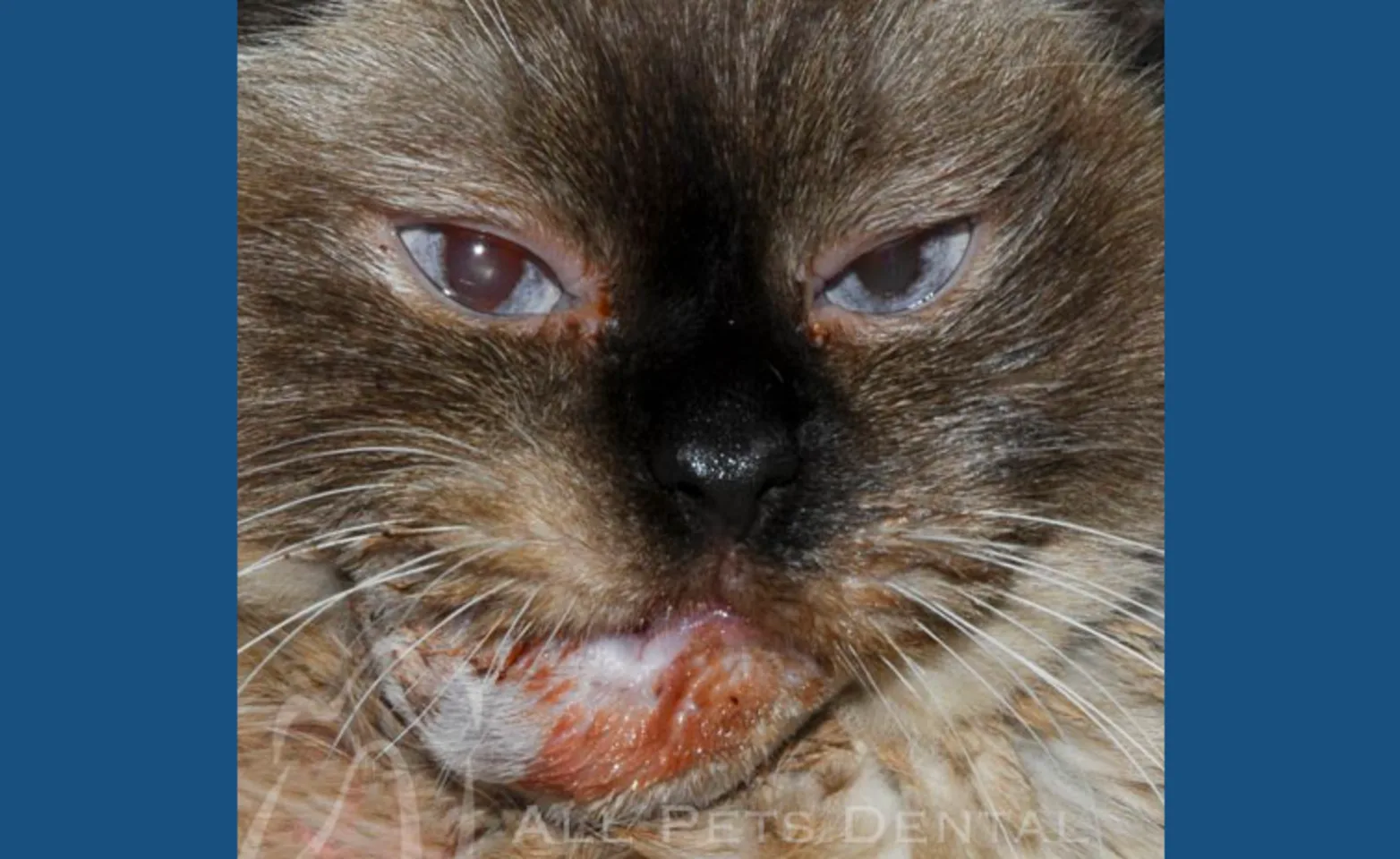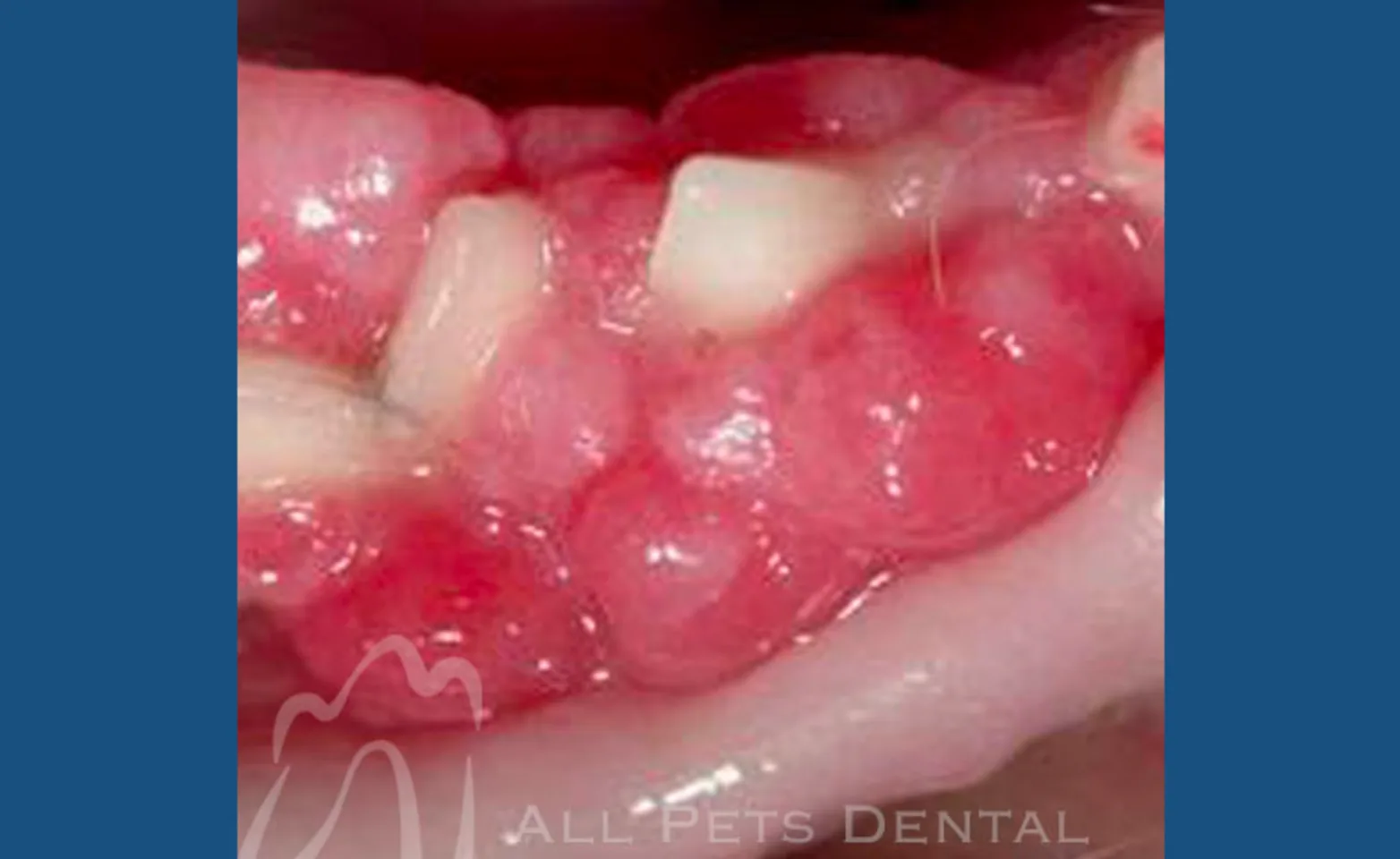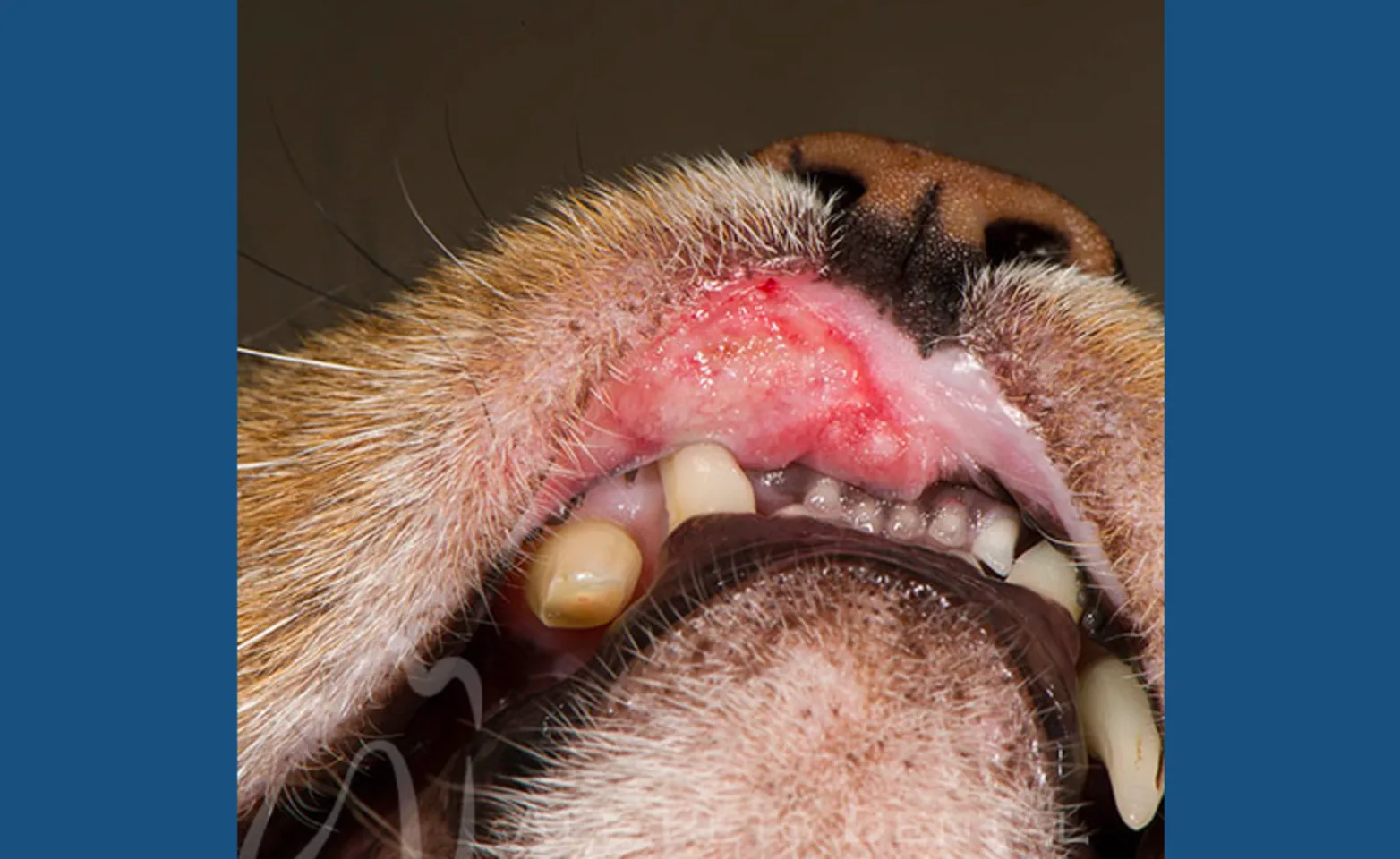Hometown Animal Hospital

Feline Oral Swellings

Squamous Cell Carcinoma
Oral squamous cell carcinoma is the most common type of malignant oral tumor. Unfortunately it carries a poor prognosis for long term survival.

Malignant Lymphosarcoma
Lymphosarcoma is a cancer that affects lymphoid tissue found throughout the body. In a healthy cat, the lymphatic system acts to filter out bacteria and debris, manage fluid levels in the body, and also houses white blood cells (known as "lymphocytes").

Peripheral Odontogenic Fibroma
Peripheral odontogenic fibromas include fibromatous and ossifying epulides. Epulis (plural=epulides) is a general term referring to a gingival mass of any type. This term has been adapted in veterinary nomenclature to refer to tumors arising from epithelial remnants within the periodontal ligament. The ossifying type is distinguished from the fibromatous type by containing varying amounts of bone, osteoid, dentinoid, or cementum-like tissue. Treatment of choice is removal of the mass and often the underlying tooth to prevent further spread.

Eosinophilic Granuloma
Feline Eosinophilic Granulomas occur in the cat's mouth, tongue, or lips secondary to allergies, fleas, or without a specific cause. Generally they are responsive to surgery and/or corticosteroids.

Dental Cyst
Large benign dental cyst surrounding the right upper canine tooth

Swelling
Swelling and inflammation to a local irritant
